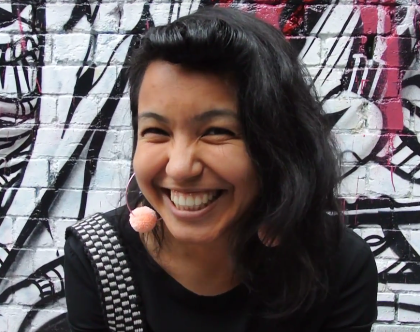From this year onwards, ICAF is not only international in its festival programming, but also in the very heart of the organisation. We’d like to introduce you to our first guest curator: Tania Cañas. Tania is a Melbourne-based performer, facilitator and researcher all within community driven settings. Get to know her by reading the short interview with our assistant programmer below.
Jasmina Ibrahimovic: What are your artistic and social criteria for community arts?
Tania Cañas: A good community arts project is one that provides autonomous, self-determining and self-actualising spaces; spaces that are not only community engaged, but community driven. A good community arts project values intersectionality, acknowledging human existence as socially and politically complex as opposed to falling into simplistic, dichotomous, pre-determined framing of identity and subsequent modes of expression. Such projects are self-reflexive throughout the entire process, not just evaluative at the end. They are critically aware of their intentionality and positionality. They are aware how the space came to exist, for whom and why. They are also aware of the power relations that exist within the project, as a microcosm of reality. A good community arts project understands that practice is political and considers the social criteria as the artistic criteria. It does not restrict participation to the end of a project; instead it provides multiple entry points, ensuring there are opportunities to participate in all important decision making processes. A good community arts project is not working for community, and sometimes not even with, but as community, exemplifying a praxis of “nothing about us, without us”
Jasmina Ibrahimovic: How do you imagine your role as ICAF guest curator?
Tania Cañas: I see the role of the guest curator as someone who is the sensory extension of ICAF. They provide a connection between the festival and the initiatives happening in their locale, in particular the initiatives that might not get the best exposure because they are actually doing the work! I see this role as particularly important as an Australian community practitioner, as Australia is cartographically distant and thus sometimes isolated from global discourse.
Read more about our guest curators here.

